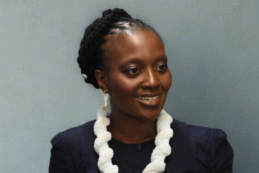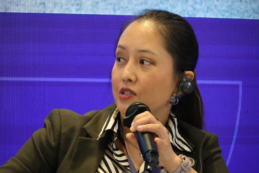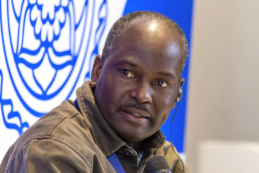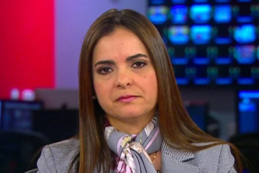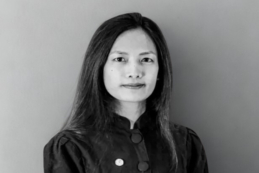repressions in Crimea
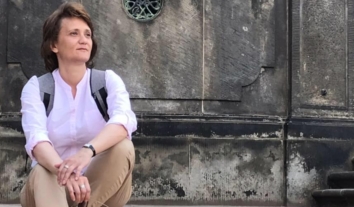
The Verkhovna Rada Committee on Freedom of Speech condemned the pressure on journalists in Crimea following the detention of Lenora Dyulber
The committee's statement notes that the persecution of journalists violates international law and is aimed at suppressing any independent information about the situation under occupation
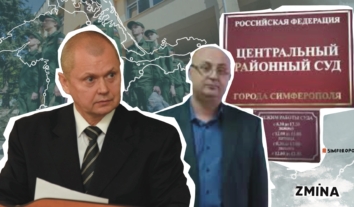
Ranking illegitimate “judges” in Crimea who illegally force the local population to serve in the Russian army
This ZMINA article examines the most active illegitimate judges who ensure "successful" conscription campaigns for the Russian armed forces in the temporarily occupied Crimea.
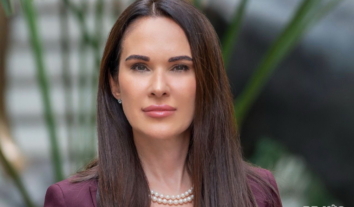
Ukraine invites nations across Africa, South America, and Asia to join a global justice alliance
At the Crimea Global forum in Kyiv, Iryna Mudra appealed to states of the Global South to join the Special Tribunal on the Crime of Aggression, arguing that justice for Crimea and Ukraine is inseparable from the safety and sovereignty of countries worldwide.
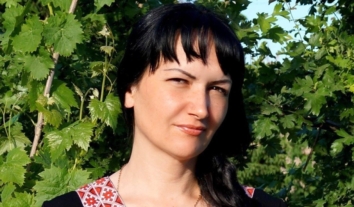
“Sharper than physical pain – the feeling of helplessness”: speech of the imprisoned journalist
Iryna Danylovych, a Crimean civic journalist and activist who has been held in Russian custody since 2022, has been named a laureate of the "Story of Injustice" human rights prize, which honors victims of political persecution. On November 3, 2025, in Prague, Tetyana Pechonchyk, head of the Human Rights Centre ZMINA, accepted the award on behalf of Iryna Danylovych and delivered her speech. ZMINA published the text of that speech
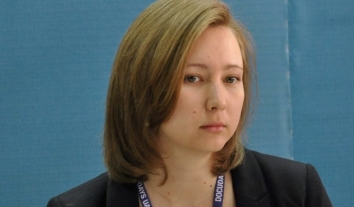
Freezing the conflict means intensifying repressions against Ukrainians in the occupied territories
ZMINA published a speech by Olha Skrypnyk, Head of the Crimean Human Rights Group, explaining the consequences of ignoring humanitarian challenges in the negotiation process
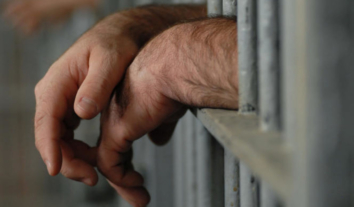
Trump must remember those Ukrainian prisoners dying in Russia – Nobel winner Matviichuk to US President
Matviichuk considers it abnormal when politicians talk about elections, minerals and concessions, but not about people. In her opinion, the human dimension must be returned to the negotiations. This must be done to stop the war and the loss of life

There will be no lasting peace without liberation of Crimea – Mejlis Chairman Refat Chubarov
The Chairman of the Mejlis of the Crimean Tatar People Refat Chubarov stated that any proposals for Ukraine to cede its territories must be rejected. He stressed that without the liberation of Crimea, there can be no lasting peace that will ensure freedom and security for all Ukrainian citizens
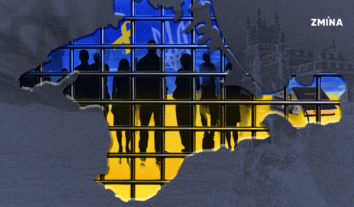
11 years of oppression and repression: how human rights in occupied Crimea are approaching zero
Read about the events, figures and trends in the field of human rights in the temporarily occupied territory in the overview material dedicated to the Day of Resistance to the Occupation of Crimea
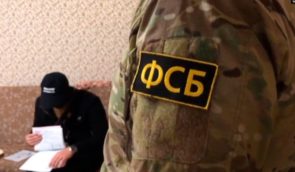
Moscow weaponizes terror laws against civilians in occupied Crimea – CrimeaSOS
Russian authorities began using the international terrorism article after February 24, 2022. This provision, introduced through the "Yarovaya anti-terrorist package" in 2016, serves as a tool to target pro-Ukrainian activists in newly occupied territories
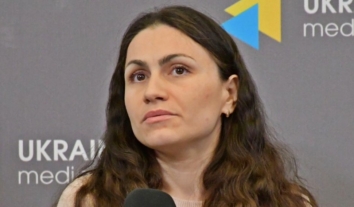
Why it is important to compile a blacklist of officials involved in human rights violations in Crimea
Through politically motivated persecutions, arbitrary imprisonment in trumped-up criminal cases, illegal house searches and trials in the occupied Crimea, deportations of political prisoners and ignoring their situation in detention, Russia systematically violates its obligations under international humanitarian law and international human rights law
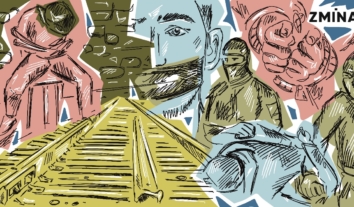
Abductions: from sensation to routine. How the practice of enforced disappearances has changed in the occupied Crimea
Enforced disappearances, arbitrary detentions and politically motivated prosecutions in the occupied Crimea have become the routine. This statement was made by human rights defenders at a session of the UN Human Rights Council last week.
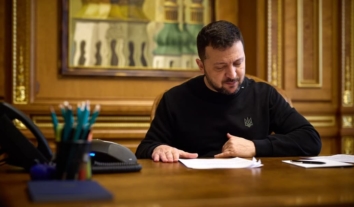
Ukraine sanctions 11 more illegitimate “judges” in Russian-occupied Crimea for persecuting residents and indigenous people
The Mission of the President of Ukraine in the Autonomous Republic of Crimea views these sanctions as a crucial tool in disrupting repressive mechanisms in the temporarily occupied territories and limiting the occupation administration's ability to continue persecutions
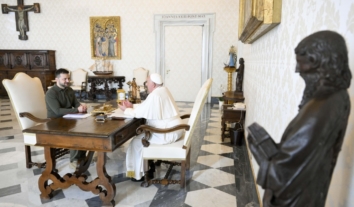
Ukraine to give Vatican list of journalists illegally held by Russia – Zelenskyy
Zelenskyy and the Pope agreed that Ukraine would provide a list of journalists currently held captive in Russia and would discuss the release of civilians and deported children
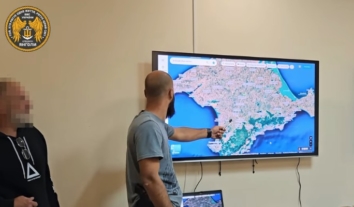
Special unit evacuates Navy officer’s family facing FSB persecution in temporarily occupied Crimea
Russians held illegally the entire family for three days, subjected to psychological pressure and threats of torture. In doing so, the Russians were planning to coerce the Ukrainian officer to cooperate
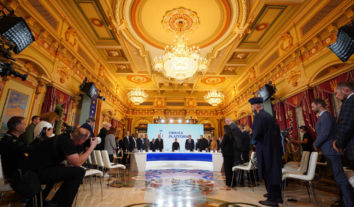
Kremlin’s forgotten political prisoners in Crimea: Human rights advocates urge global focus on Ukrainian hostages at the Crimea Platform
In this article, ZMINA reveals what was debated on the sidelines of the summit, the potential prerequisites for peace, the scale of the crisis involving Crimeans persecuted by Russia, and why raising awareness is crucial to achieving justice
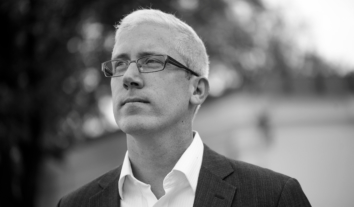
Understanding Russia’s colonial aspirations is key to peace talks
Rory Finnin insists, when discussing peace in Ukraine, it's impossible to ignore the historical context. The Crimean Peninsula, home to Crimean Tatars for centuries, has become a symbol of Russian imperial ambitions. Understanding this complex history is crucial for countering Kremlin propaganda and finding ways to justly resolve the conflict

Zelenskyy pleads for Muslim nations to lead efforts in freeing Crimean Tatars and other political prisoners illegally detained by Russia
Zelenskyy emphasised the need for pressure on Russia from all partners to establish a proper exchange system based on the principle of "everyone for everyone." Zelenskyy pointed out that, based on previous experience, releasing political prisoners has been extremely challenging
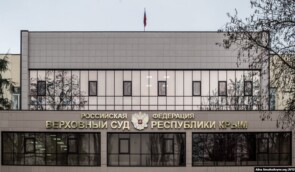
Illegitimate “court” in occupied Crimea sentences Hurzuf resident to 13 years for alleged “high treason”
The illegitimate “prosecutor's office” report provided no details of the case


